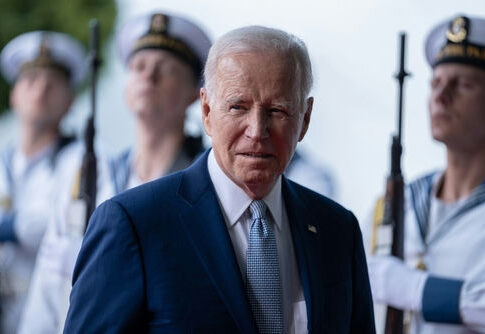An explosive insider account exposes how the Biden White House’s tight-knit inner circle crushed dissent and punished honesty—raising serious questions about transparency, leadership, and the dangers of unchecked power at the highest levels.
Firsthand Criticism Reveals Toxic White House Culture
Michael LaRosa, who served as press secretary to First Lady Jill Biden and a close aide to both Bidens, described a White House where dissent was actively suppressed, and staffers who voiced concerns were met with bullying and intimidation. In his Fox News op-ed, LaRosa claimed that senior staff operated more like a “cult” than a team serving the American people, creating a bunker mentality as scrutiny of the administration intensified in the lead-up to the 2024 election. He argued that honest feedback was discouraged, and those who dared to question decisions or raise issues—especially about President Biden’s health—faced personal and professional consequences.
LaRosa’s account is not isolated. Excerpts from Vice President Kamala Harris’s forthcoming book reportedly corroborate claims of bullying, marginalization, and a zero-sum mentality among the president’s senior advisers. Harris charges that her successes were downplayed, and that the White House inner circle enforced loyalty above all else, often at the expense of open dialogue and effective governance. These revelations have reignited public debate about the extent of dysfunction within the Biden administration and the impact of such leadership on national policy and public trust.
Insular Leadership and Suppression of Dissent Raised Alarms
Reports from inside the White House indicate that decision-making was dominated by a small, insular group of advisers who wielded outsized influence. This concentration of power reportedly allowed bullying and enforced loyalty to flourish, discouraging debate and honest feedback—fundamental principles in any transparent government. Insiders described a climate where disagreement was seen as betrayal, and staff turnover, especially in the vice president’s office, reflected deeper issues of morale and trust. The result was a leadership style that prioritized message discipline and control over genuine problem-solving and accountability.
Such a culture has real-world consequences. Analysts and scholars warn that insular, loyalty-first environments undermine effective governance and can lead to disastrous policy missteps—especially when leaders become shielded from inconvenient truths or constructive criticism. For conservatives, this pattern is especially troubling, representing the kind of government overreach and lack of transparency that erodes constitutional principles and public confidence.
Public Fallout and Broader Implications for Governance
The fallout from these revelations has extended beyond the White House, fueling a wave of media coverage and renewed scrutiny of Democratic Party leadership. Speaker Emerita Nancy Pelosi and other party figures have criticized the president’s political operation, while anonymous Biden aides have pushed back, accusing Harris and LaRosa of exaggerating or acting out of personal grievances. Nonetheless, the convergence of multiple firsthand accounts—including from high-ranking insiders—lends weight to concerns about the administration’s culture and its impact on national governance.
Short-term effects include eroded staff morale, negative press, and a weakened ability to present a unified message. Long-term, political experts suggest these dysfunctions may have played a role in the Biden administration’s loss of public confidence and contributed to the outcome of the 2024 election. The public exposure of internal disputes and suppression of dissent sets a troubling precedent for future administrations and highlights the need for leadership that values open debate, transparency, and accountability—foundational American values that must be defended.
Sources:
Top Biden Aide Slams President’s Inner Circle: ‘They Were Serving a Cult’
Harris speaking up this time — she isn’t bending to Biden’s bullies

